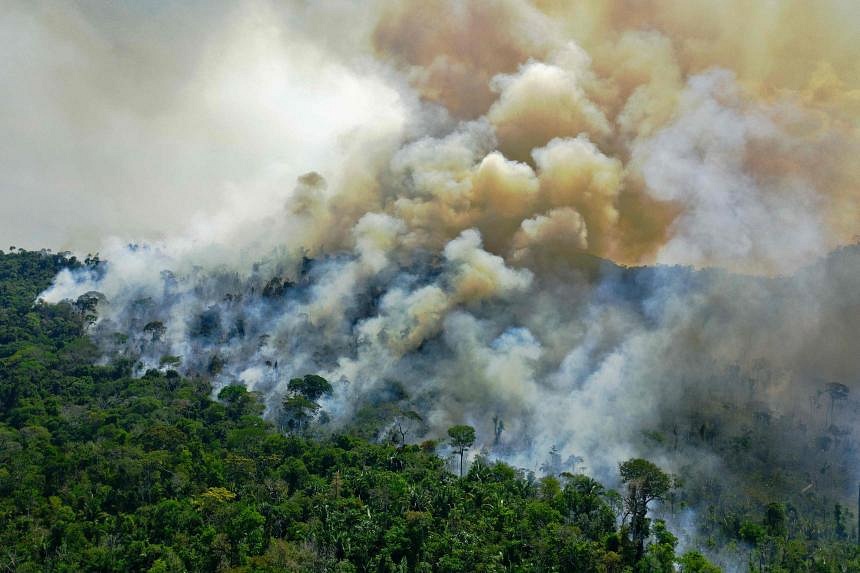WASHINGTON – More than one third of the Amazon rainforest may have been degraded by human activity and drought, researchers said on Thursday, and urgent action is needed to protect the critically important ecosystem.
In a study published in the journal Science, the researchers said the damage done to the forest, which spans nine countries, is significantly greater than previously known.
For the study, they examined the impact of fire, logging, drought and changes to habitat along the forest borders – what they called edge effects.
Most previous research into the Amazon ecosystem has focused on the consequences of deforestation.
The study found that fire, timber extraction and edge effects have degraded at least 5.5 per cent of all remaining Amazonian forests, or 364,748 square kilometres, between 2001 and 2018.
But when the effects of drought are factored in, the degraded area increases to 2.5 million sq km, or 38 per cent of the remaining Amazonian forests.
“Extreme droughts have become increasingly frequent in the Amazon as land-use change and human-induced climate change progress, affecting tree mortality, fire incidence, and carbon emissions to the atmosphere,” the researchers said.
“Forest fires intensify during drought years,” they said, warning of the dangers of “much larger megafires” in the future.
The researchers from Brazil’s Universidade Estadual de Campinas and other institutions used satellite images and other data from 2001 to 2018 to reach their conclusions.
In a separate study published in Science of the human impacts on the Amazon, researchers from the University of Louisiana Lafayette and elsewhere called for action.
“The Amazon is perched to transition rapidly from a largely natural to degraded and transformed landscape, under the combined pressures of regional deforestation and global climate change,” they said.
“The changes are happening much too rapidly for Amazonian species, peoples, and ecosystems to respond adaptively,” they said. “Policies to prevent the worst outcomes are known and must be enacted immediately.
Stay connected with us on social media platform for instant update click here to join our Twitter, & Facebook
We are now on Telegram. Click here to join our channel (@TechiUpdate) and stay updated with the latest Technology headlines.
For all the latest For Top Stories News Click Here

